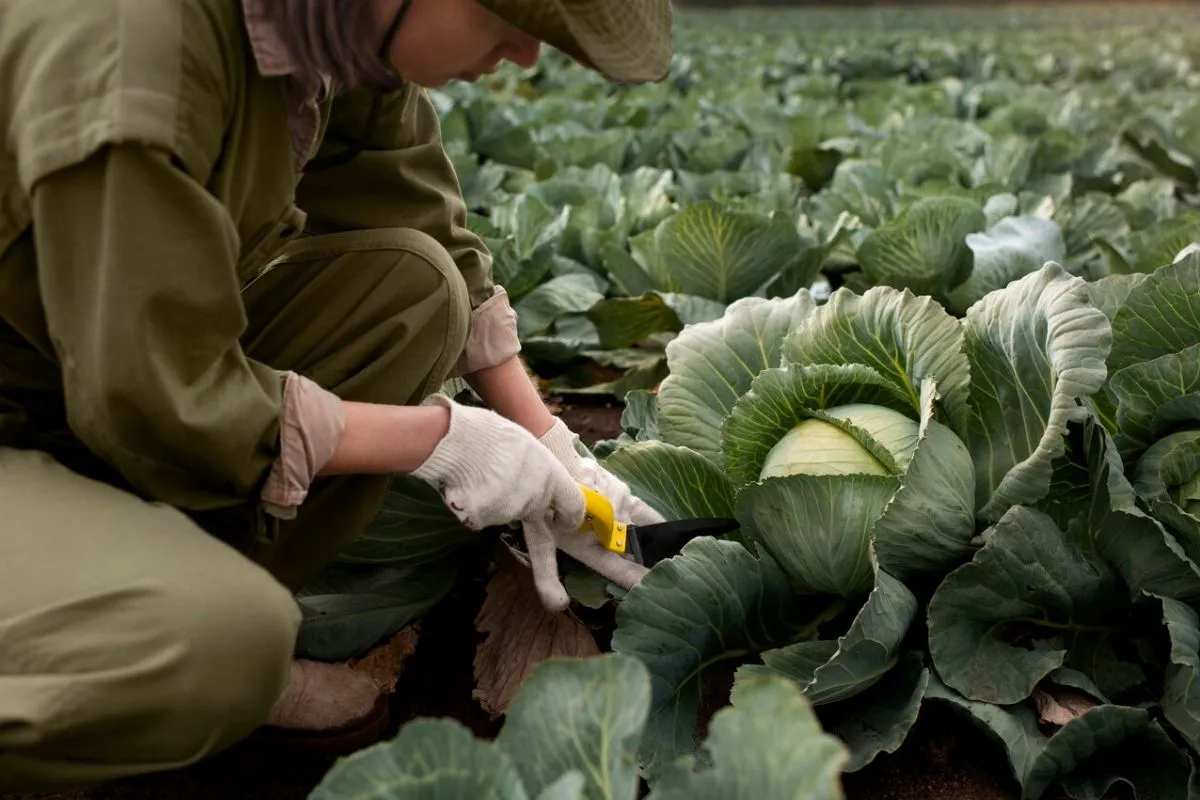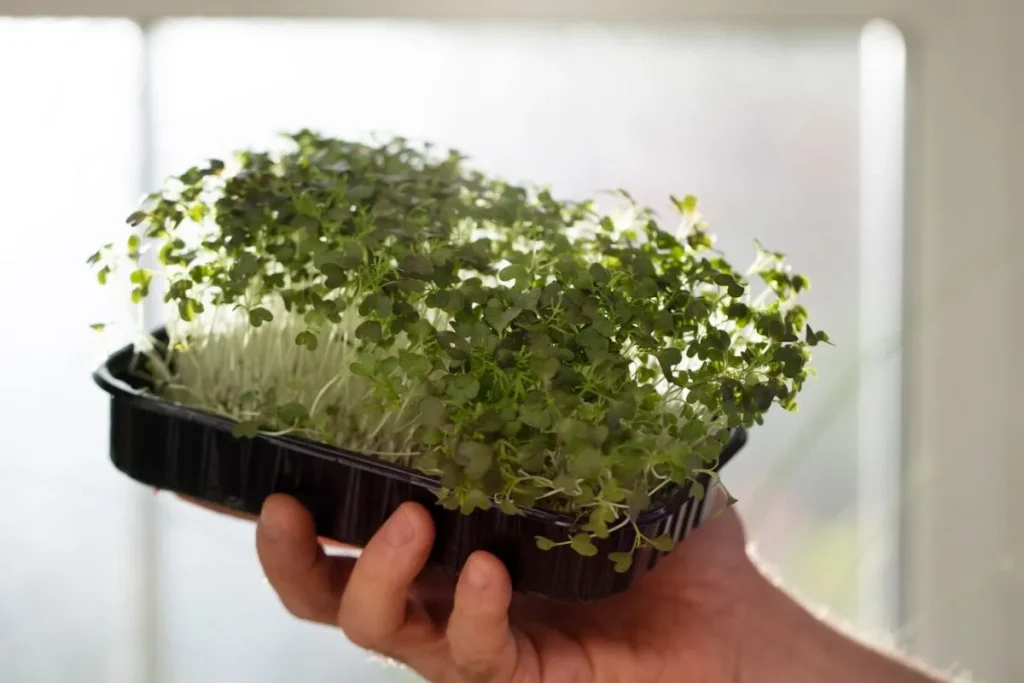Using Algae in Sustainable Urban Farming is a burgeoning concept with promising potential. This innovative approach leverages eco-friendly methods to enhance urban food production.
Traditional agriculture faces significant challenges. These include resource depletion, environmental degradation, and limited space in urban settings.
Using Algae in Sustainable Urban Farming addresses these issues effectively by providing a sustainable development model.
What is Sustainable Urban Farming?
Sustainable urban farming integrates agricultural practices in urban spaces. This method prioritizes environmental, social, and economic sustainability. It helps reduce the urban heat island effect and improves air quality, contributing to healthier living conditions.
In urban settings, limited space poses a significant challenge. However, innovative techniques, such as vertical farming, have emerged to maximize space usage. These methods allow for higher crop yields per square foot, making urban agriculture more viable and efficient.
Sustainable urban farming encompasses practices like hydroponics, aquaponics, and the use of renewable resources such as algae.
These systems use significantly less water than traditional farming methods and can be implemented in a variety of urban settings, from rooftops to abandoned warehouses, enhancing urban resilience and food security.
Benefits of Algae in Urban Agriculture
Using Algae in Sustainable Urban Farming offers numerous benefits. Algae are efficient bio-factories for organic matter, producing oxygen and consuming CO2.
High yield and fast growth rates make algae ideal for urban agriculture. They can be cultivated in small spaces or even in vertical systems.
Algae can also be integrated into aquaponic systems, creating a symbiotic relationship that enhances nutrient cycling and productivity.
Methods of Integrating Algae in Urban Farming
Incorporating algae into urban farming requires innovative methods. Algae can be grown in bioreactors, ponds, or photobioreactors.
Photobioreactors are effective for urban settings. These systems maximize light exposure, enhancing algae growth.
Integrating algae into hydroponics systems is another viable method. Algae enhance nutrient availability, promoting plant growth.
Environmental Impact and Sustainable Development
Using Algae in Sustainable Urban Farming positively impacts the environment. Algae absorb CO2, mitigating urban carbon footprints. This natural carbon sequestration process helps combat climate change, making urban areas more environmentally friendly.
By harnessing renewable resources, this method supports sustainable development. It also reduces the reliance on chemical fertilizers and pesticides. Algae can be used as a natural biofertilizer, enhancing soil health and reducing the need for synthetic inputs, which are often harmful to the environment.
Algae-based systems contribute to water purification. They absorb excess nutrients, preventing harmful runoffs into water bodies. This not only improves water quality but also helps prevent issues like algal blooms and eutrophication, which can devastate aquatic ecosystems and local biodiversity.
Renewable Resource Utilization
Algae are a renewable resource. Their fast growth cycles enable continuous production without depleting natural resources. This efficiency is key in addressing food security challenges.
Additionally, algae cultivation requires minimal land and water, making it ideal for urban settings. It can thrive in environments unsuitable for traditional agriculture, further conserving precious resources.
Urban farming systems can utilize waste streams to cultivate algae. This practice recycles nutrients and reduces waste. By integrating algae cultivation into waste management systems, cities can enhance their sustainability.
Wastewater can provide essential nutrients for algae growth, turning a disposal problem into a productive solution. This symbiotic relationship helps create closed-loop systems that benefit both urban environments and food production.
Transitioning to algae-based systems presents a scalable solution. This fosters sustainability and resilience in urban food production. Algae cultivation can be tailored to different scales, from small home setups to large commercial operations.
It offers flexibility and adaptability, crucial for dynamic urban landscapes. By embracing algae-based systems, urban areas can become more self-sufficient and less reliant on external food sources, enhancing overall food security and sustainability.
Organic Matter and Soil Health
Algae contribute to organic matter in urban farms. They decompose into rich compost, enhancing soil health and fertility.
Integrating algae into urban agriculture improves soil structure. This supports robust root development and healthier plants.
Healthy soils are crucial for sustainable urban farming. They promote biodiversity and resist erosion, ensuring long-term productivity.
Challenges and Future Prospects
While using algae in sustainable urban farming is promising, challenges exist. Scaling up algae production requires significant investment. Infrastructure costs and technology upgrades are necessary to ensure efficient and consistent production. These initial expenses can be prohibitive, especially for smaller operations trying to establish themselves in the market.
Technical expertise and infrastructure are essential for effective algae cultivation. These requirements may pose barriers for small-scale farmers. Knowledge of algae biology, appropriate growing conditions, and system maintenance are crucial for success.
Without access to proper training and resources, farmers might struggle to implement algae cultivation effectively. Additionally, maintaining the equipment and ensuring optimal growth conditions can be demanding.
Future prospects for algae in urban farming are bright. Continued research and innovation will overcome current limitations. Advancements in technology and cultivation techniques will drive down costs and simplify processes. Collaborative efforts between researchers, policymakers, and industry players can facilitate knowledge sharing and support.
This progress will make algae-based urban farming more accessible and feasible for a wider range of growers, fostering a more sustainable future.
Economic Viability
Establishing economic viability for algae farming is crucial. Initial investments in infrastructure and technology are necessary.
Government support and incentives can facilitate the adoption of algae-based systems. Policies promoting sustainable practices will drive growth.
Scaling production and enhancing market access will make algae farming economically viable. This will benefit urban farmers and consumers.
Examples of Successful Implementations
Several urban farms have successfully integrated algae into their systems. These case studies highlight the potential of algae in urban agriculture.
Aquaponic systems in urban areas have demonstrated high yields. Algae contribute to nutrient cycling, enhancing the efficiency of these systems.
Photobioreactors in cities like Tokyo showcase innovative algae cultivation. These systems maximize space usage and provide sustainable food sources.
Summary and Future Implications
Using Algae in Sustainable Urban Farming offers a viable solution for urban food production. Algae provide numerous benefits, from environmental sustainability to economic viability.
Future research and innovations will further enhance algae integration in urban agriculture. This will support sustainable development and resilient urban food systems.
Urban communities can adopt algae-based farming systems. This promotes eco-friendly practices and contributes to self-sufficiency.
Embrace algae in urban farming. Strengthen your food systems and contribute to a sustainable future.
Frequently Asked Questions
What are the benefits of using algae in sustainable urban farming?
Algae offer high yield, fast growth, and efficient nutrient cycling. They absorb CO2 and produce oxygen, benefiting the environment.
How can algae be integrated into urban farming?
Algae can be grown in photobioreactors, ponds, or integrated into hydroponics and aquaponics systems for nutrient cycling.
What are the challenges of using algae in urban farming?
Challenges include high initial investment, technical expertise, and infrastructure needs. Small-scale farmers may face barriers.
Can algae farming be economically viable?
Yes, with government support, scaling production, and market access, algae farming can become economically viable.
Are there successful examples of algae in urban farming?
Yes, several urban farms in cities like Tokyo have successfully implemented algae-based systems, demonstrating their potential.



